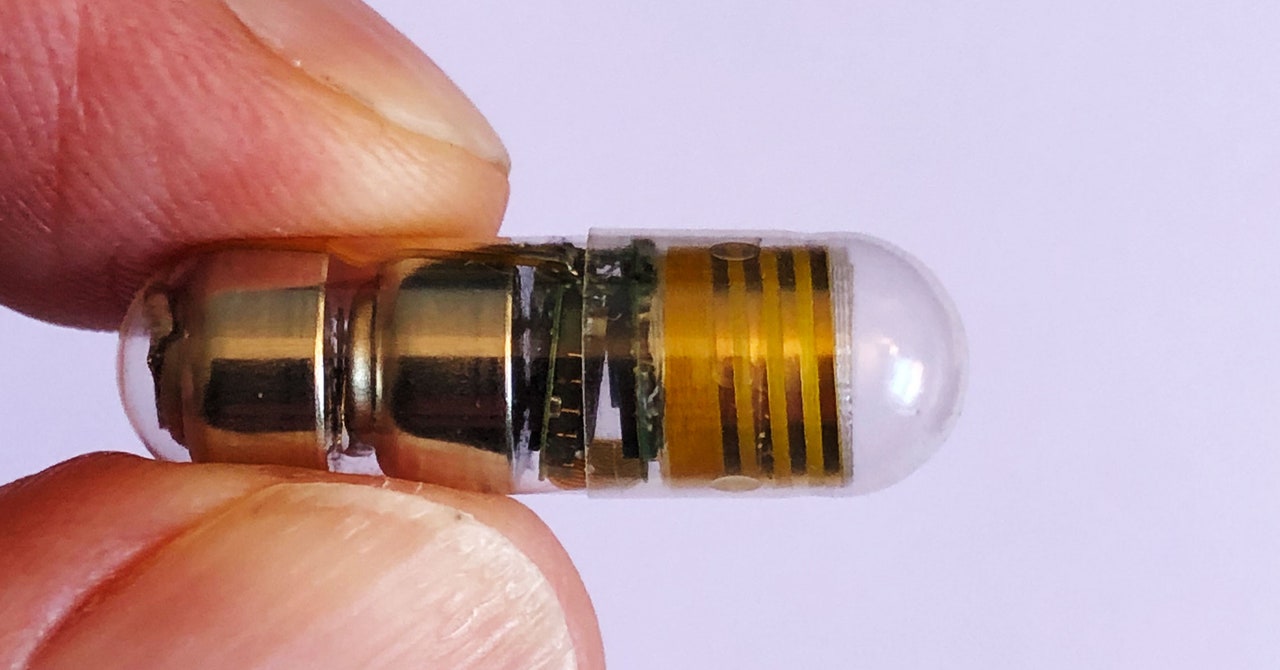
Digital health company Celero Systems is developing an electronic pill that can measure heart rate, breathing rate, and core temperature—from inside the human stomach. As a first step, the company envisions people with ongoing conditions using the digital capsule to monitor their vital signs at home. But in the future, they hope to use it as a kind of internal alarm system for drug-related overdoses.
In a small clinical trial published in November, the company tested the device on people with sleep apnea, a disorder in which breathing occasionally stops and starts at night. To get a proper diagnosis, people often need to spend the night in a hospital, where they get covered in electrodes that measure their heart rate, breathing, muscle twitches, and brain activity: a comprehensive evaluation called polysomnography. This is a recipe for a crappy night’s sleep, whether you have apnea or not.
Patients can instead opt for an at-home test that involves wearing a breathing monitor on their finger overnight. But this can still cost hundreds of dollars, and it’s not always accurate. These wearables can’t measure respiration directly, just variations in heart rate presumably caused by breathing. But a pill inside the stomach can’t fall off, and it can measure lung movements internally.
Celero’s monitoring pill isn’t really a “pill” in the traditional sense—it’s a biocompatible plastic capsule, roughly the size of a big multivitamin, stuffed with tiny sensors, a microprocessor, a radio antenna, and batteries. Prior to working at Celero Systems, CEO Ben Pless primarily worked with medical implants, including one of the first implantable defibrillators. But ingestible devices, or digital pills, always intrigued him because, he says, “you could get inside the body without surgery.” Ingestibles offer many of the same benefits of implantables—they’re unobtrusive and you can’t forget to wear them—“except you implant it with a glass of water rather than a surgeon,” he says.
The capsule remains intact throughout its digestive system journey, keeping all of its electronics safely contained until it winds up in the toilet a couple of days later. Meanwhile, all the measurements are wirelessly transmitted to a laptop, where a researcher, doctor, or even the patient can access them. As far as Pless knows, Celero’s ingestible device is the first to monitor cardiac and respiratory activity in humans.
For the study, 10 sleep apnea patients at West Virginia University (WVU) Medicine Sleep Evaluation Center swallowed the pill prior to their regularly scheduled sleep studies so researchers could see how the pill’s measurements compared to a polysomnogram, the current gold standard. It was nearly as accurate, only off by about one breath per minute—more than capable of detecting respiratory depression. No one reported any side effects or discomfort, and post-study scans confirmed that all of the pills were safely passed within a few days.

